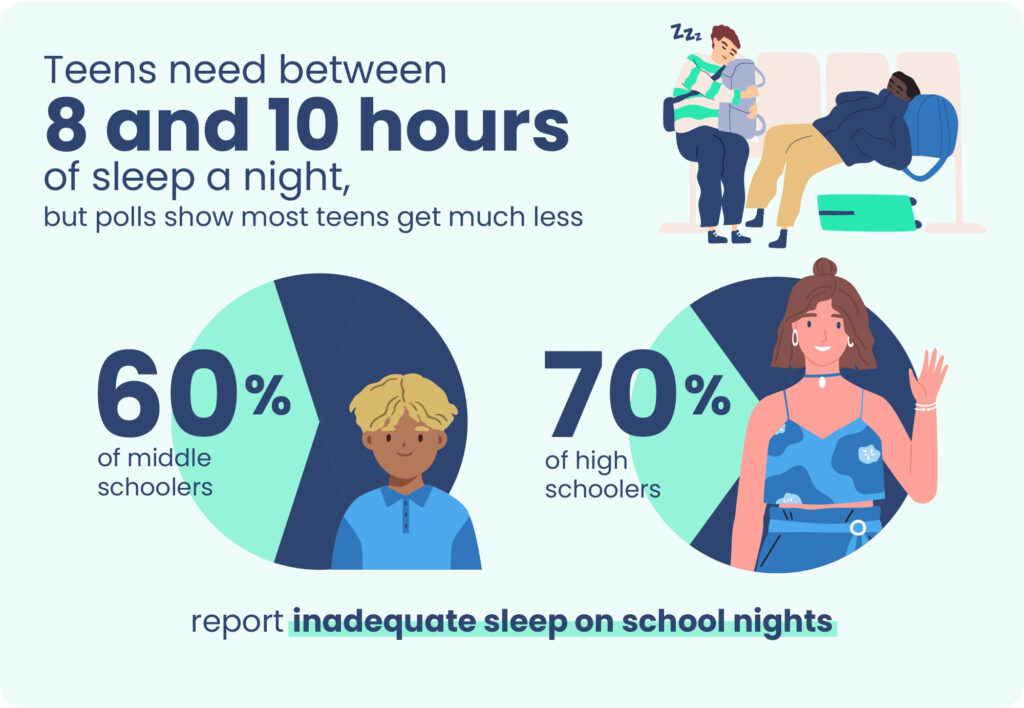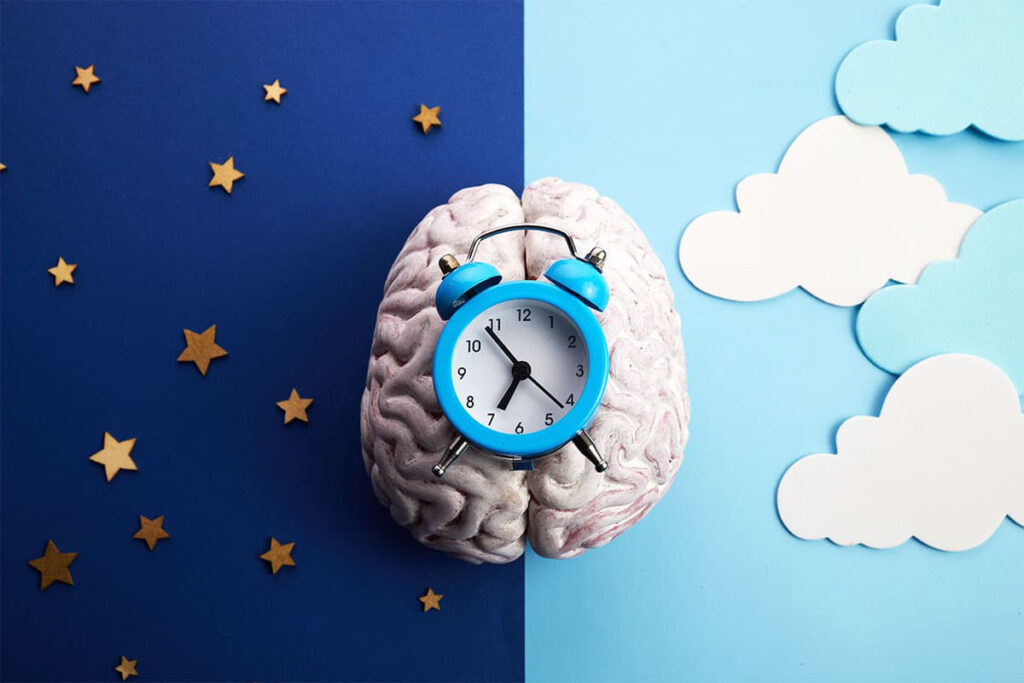Our bodies and brains require sufficient sleep.
Sleep is restorative. Many important processes happen, including:
- Muscle repair
- Protein synthesis
- Tissue growth
- Hormone release
How much sleep is enough? According the American Academy of Pediatrics (AAP) kids who are 6 – 12 years old require 9 to 12 hours, and teens who are 13 – 18 years old should get 8 to 10 hours per night.

What are some tips for kids and teens getting sufficient sleep?
- Set a consistent sleep schedule – Bedtime or wake time should not differ more than an hour from one day to the next
- Weekends – Don’t sleep in on weekends to “catch up” on sleep. This makes it harder to fall asleep at bedtime.
- Electronics – Blue light from phones, computers, tablets, TV, and even nightlights, can trick the brain into thinking that it’s daytime. Encourage your teen to put all screens away at least an hour before bedtime, and charge devices outside their bedroom overnight. Having screens right there is tempting and sets kids up for staying up too late.
- Naps – A 15-20 minute nap in the afternoon is helpful, however later in the day or too long can make it difficult to fall asleep at bedtime
- Sunlight – Exposure to morning or early afternoon sunlight can help the body maintain its natural sleep-wake cycle
- Exercise – Physical activity can help you fall asleep or sleep more deeply. Try to avoid vigorous activity at least 2 hours before bedtime.
- Bedroom – The bedroom should be comfortable, quiet, and dark. Sleeping in a room above 75° F will affect sleep quality. Have a separate space/area for studying and working
- Bedtime – Make the 30 to 60 minutes before bedtime a quiet or wind-down time. Relaxing, calm, enjoyable activities such as reading a book or listening to soothing music help your body and mind slow down enough to let you sleep.
- Snack – Eat regular meals and don’t go to bed hungry. A light snack before bed is a good idea; eating a full meal in the hour before bed is not.
- Caffeine – Avoid eating or drinking products containing caffeine in the late afternoon and evening. These include caffeinated sodas, coffee, tea, and chocolate.
Adapted from nationwidechildrens.org
Check out these links to learn more…
Healthy Sleep Habits: How Many Hours Does Your Child Need?



